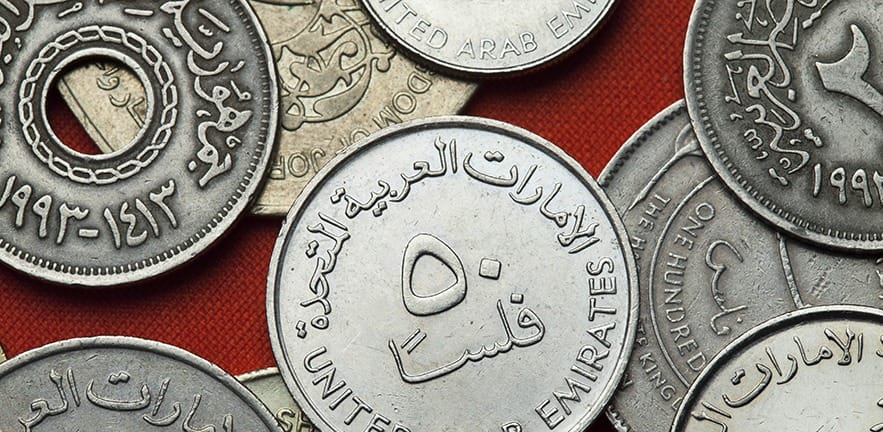Recent regulations make switching banks easier. But have you ever thought about switching to a whole different banking system, one that can’t charge interest and must treat customers fairly?

When it comes to better banking Islamic finance has a lot of qualities that Western consumers and business owners would like from their own banking services. Operating in compliance with Sharia law, it’s based on risk-sharing, with customers and banks sharing both the upside and the downside of the bank’s investments. And banks can invest only in the real economy and in enterprises that are also Sharia-compliant.
Islamic finance can offer “a more stable, reliable and equitable system of finance” suggests Kamal Munir, Reader in Strategy and Policy at Cambridge Judge Business School (CJBS). So what lessons could global banks learn from their counterparts in Islamic banking? Munir and his fellow experts at CJBS discuss the five features of Islamic finance that many customers of mainstream banks might find very appealing.
- Risk-sharing

Iman El-Marashly “Islamic finance, if properly implemented, allows only for ‘we win together or we lose together’ situations,” says Iman El-Marashly, Doctoral Researcher in Financial Stability and Islamic Finance at Cambridge University and former Deputy Corporate Banking Director at Barclays Bank Egypt. In theory, in Islamic finance the financier shares both the business upside and the business risk, with the bank receiving a percentage of the actual profit its customer makes. “The higher the actual profit, the higher the financier’s returns,” says El-Marashly. “This business model, based on risk-return sharing, should nurture alignment of interest between corporations and financiers, which in turn can embed trust in the financial system. This is as opposed to the conventional financial system, where companies not only face the rigid debt structures in which they need to pay interest on the loan regardless of their performance, but they also know that the lending conditions will be tightened during bad times when they are in need of support.”
- Greater transparency
A decade ago, most customers of banks in European countries would not have known that those banks might be threatened by complex investments based on debts created in other countries. These customers did not have a full understanding of the risks they faced. Every Islamic bank is supervised by its own Sharia Supervisory Board, which ensures every product is fair and compliant with Sharia law. This stops Islamic banks from investing in the complex financial derivatives that triggered the financial crisis. The Board also helps to remove ambiguity from contracts, says Baljeet Kaur (Executive MBA 2011), Managing Director and Vice Chairman of KFH Research, who has extensive experience in senior management positions within both Islamic and conventional financial institutions. “If the contract is clear that brings certainty to the system, especially for long term investments,” she explains. “It creates a more transparent form of borrowing and lending.” - More resilient financial institutions

Baljeet Kaur “The most important virtue of Islamic finance is increasing the resilience of the economy,” says El-Marashly. “Imagine how financial resilience can be enhanced if there are no rigid debt structures in the economy, and if all investors are only allowed to share risk and return.” This would also mean the economy would not be affected by the chains of risk transfer between market players, created in part by the use of very complicated financial products that proved to be one of the main causes of the financial crisis. Even though in practice Islamic financial institutions are not completely isolated from the mainstream financial system, the fact that some of the complex financial products that helped to create the crisis are not Sharia-compliant helped to protect some Islamic banks from the first phase of the crisis, says Baljeet Kaur. “When the second phase of the crisis started Islamic banks were hit, because a lot of their balance sheets were real estate,” she notes. “But even then, it only impacted them in an asset valuation aspect.”
- Ethical investment in the real economy
Although many customers of conventional banks are comfortable investing in some of the areas forbidden under Sharia law, such as alcohol or tobacco, many would also appreciate the rigour of the ethical investment policies followed by Islamic banks. “It is a socially responsible form of finance,” says Kaur. She suggests that one opportunity open to Islamic banks in future would be investment in green technologies and similar technologies or companies delivering a positive environmental impact. - Genuine partnerships between banks and customers
Conventional banks may say they like to build long-term relationships with customers, but those customers know that in difficult times the bank may ultimately pull the plug on their business, repossess their home, or sell their debt to a third party. An Islamic bank will not do this. “Islamic finance can offer financing structures that combine the virtues of both equity and debt,” says El-Marashly. “Corporations using these structures will share their profits with the bank, but at the same time their ownership is not diluted. And under Islamic finance no financier can push a corporation into bankruptcy.”

